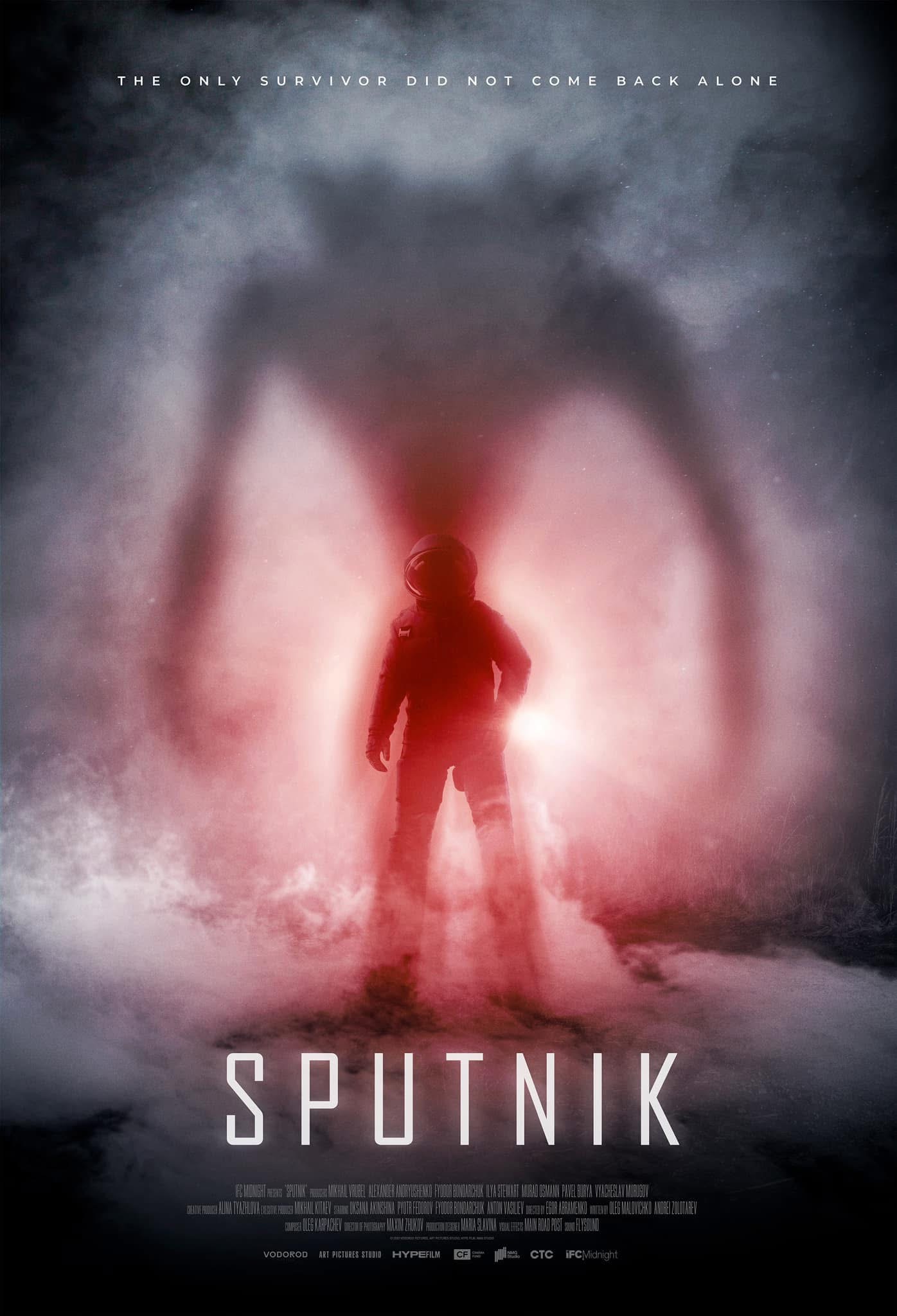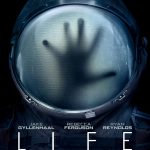Sputnik (2020)

Sputnik (2020), directed by Egor Abramenko, is a Russian sci-fi horror film that blends psychological tension with extraterrestrial horror. Set in 1983, the film delves into the paranoia and fear of the Cold War era while exploring themes of isolation, trust, and the unknown. With strong performances and a chilling atmosphere, Sputnik stands out as a thoughtful and atmospheric addition to the genre, offering both suspense and existential dread.
Plot Overview
The film begins with a Soviet cosmonaut, Konstantin Veshnyakov (Pyotr Fyodorov), returning to Earth after a space mission gone wrong. Upon re-entry, he crashes into a remote area in Kazakhstan, and his only surviving crewmate is a mysterious organism that has attached itself to his body. This organism, which behaves like a parasitic alien, is housed inside Veshnyakov’s body, emerging during moments of unconsciousness.
Dr. Tatyana Klimova (Oksana Akinshina), a talented but troubled psychiatrist, is called in by the military to study Veshnyakov’s case. What follows is a tense and morally ambiguous investigation into the nature of the alien lifeform and its impact on both the cosmonaut and his psyche. As she delves deeper into the experiment, Tatyana begins to question the ethics of the military’s actions and her own complicity in the potential dangers they are unleashing.
Direction and Cinematography
Egor Abramenko’s direction is one of the film’s strongest points, creating a claustrophobic and eerie atmosphere that keeps the viewer on edge. Sputnik does not rely on jump scares or overwhelming gore, but rather builds tension through its slow pacing and psychological unease. The use of lighting and shadows enhances the feeling of entrapment, whether in the sterile, cold military facilities or the confined spaces of the cosmonaut’s confinement.
Cinematographer Vladislav Opelyants makes good use of minimalism in the visual style, using muted color palettes and dimly lit environments to create an unsettling mood. The stark contrast between the vastness of space (which the film explores in flashbacks) and the confinement of Veshnyakov’s recovery room mirrors the emotional and psychological isolation of the characters.
Performances
Oksana Akinshina gives a standout performance as Dr. Tatyana Klimova. She brings a layered complexity to the role, portraying Tatyana as a woman grappling with her own emotional scars, while also being intellectually sharp and morally conflicted. Her interactions with the military officials, as well as her growing bond with Veshnyakov, anchor the emotional core of the film.
Pyotr Fyodorov, as the cosmonaut Konstantin, delivers a nuanced performance, conveying the trauma and inner turmoil that come with being both a subject of medical study and the vessel for an alien presence. His portrayal makes Veshnyakov sympathetic, as he is neither a simple victim nor a villain, but a man caught between fear and survival.
The supporting cast, particularly the military personnel led by a cold and calculating Colonel (Fedor Bondarchuk), is effective in adding to the tension. The political and military undertones of the Cold War era add layers of complexity to the narrative, with the characters’ varying degrees of moral ambiguity driving the story forward.
Themes and Symbolism
Sputnik explores several thought-provoking themes, most notably the ethics of scientific experimentation, the nature of trust, and the effects of isolation. The film examines how the human psyche responds to extreme situations, questioning whether it’s possible to maintain one’s morality when faced with the unknown. The alien organism itself serves as a metaphor for the fragility of the human condition, with the question of whether it’s a parasite or symbiote reflecting broader questions of dependency and control.
The Cold War backdrop adds an additional layer of tension, with the fear of the unknown alien lifeform mirroring the paranoia of the era. The idea of the state controlling knowledge and power is ever-present, as the military seeks to exploit the creature for potential biological warfare, while Dr. Klimova wrestles with her role in this potentially dangerous project.
Critique
While Sputnik excels in its atmospheric build-up and psychological tension, it occasionally feels slow, particularly in the middle act, where the plot seems to meander before reaching its more intense conclusion. The pacing can feel uneven at times, especially for viewers expecting more action or direct horror. Additionally, while the film’s psychological depth is commendable, some of the plot developments can feel predictable or underdeveloped, particularly the motivations of certain characters.
The creature design, though effective in conveying the alien’s mysterious and threatening presence, could have been more imaginative. The alien itself, though disturbing, is ultimately not as central to the story as the human emotions and relationships at play.
Conclusion
Sputnik is a solid, cerebral sci-fi horror film that stands out for its psychological depth and atmospheric tension. It offers an engaging story that blends existential dread with the paranoia of the Cold War era. While it may not be for everyone, especially those looking for fast-paced action or conventional horror, it rewards patient viewers with a thoughtfully crafted narrative and strong performances.
With a strong central performance from Oksana Akinshina and a chilling atmosphere, Sputnik is a welcome addition to the genre, balancing science fiction with psychological horror in a way that lingers long after the credits roll.









